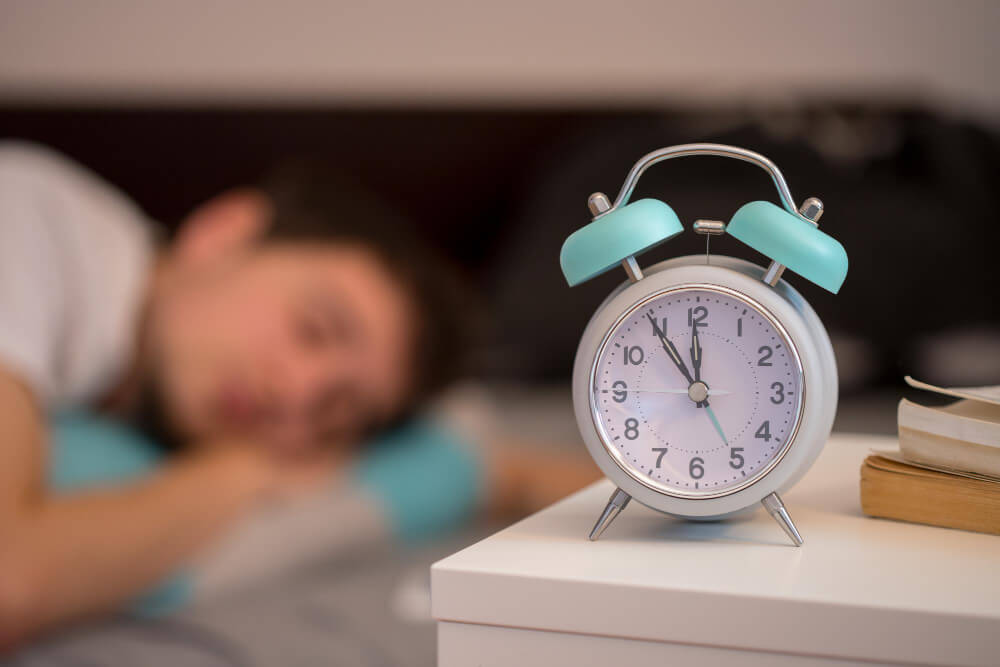
How many hours of deep sleep is best?
Getting adequate and restful sleep is a crucial pillar of a healthy lifestyle. Conversely, insufficient or poor-quality sleep can lead to numerous physical and mental health problems, from fatigue and mood swings to memory issues and low cognitive performance. So it's no wonder many people research 'how many hours of deep sleep you should get'! In this blog post, I aim to explain the best way for adults to optimize their sleeping habits to reap the ultimate benefits of maximizing productivity, boosting alertness, maintaining an even temperament throughout the day, and unlocking creative potential. That is why having enough good-quality daily shut-eye matters so much.
Benefits of Deep Sleep
Deep sleep offers countless benefits that can make us healthier, both mentally and physically. It has been shown to improve cognitive function by allowing the brain to process information more effectively. A good night's sleep also helps reduce stress levels and enhances our energies for the next day. On average, most adults need around eight hours of deep sleep each night to reap the full advantages of a well-rested body and mind. With sufficient high-quality deep sleep, you can wake up feeling alert and ready to take on whatever life throws.
How much deep sleep is enough?
Getting enough deep sleep is necessary for maintaining our physical and mental health. Typically, adults should aim for 7-8 hours of deep, restful sleep per night. However, studies have found that inadequate amounts of deep sleep can lead to a variety of negative impacts on both cognition and overall well-being. Furthermore, consistently sleeping fewer than seven or eight hours can increase the risk of developing serious diseases and conditions later in life. Therefore, we must priorities getting our recommended amount of deep sleep each night to keep us at our best.
Tips for getting more deep sleep
Good sleep habits can make all the difference in a good night's sleep - profound sleep. Deep sleep is your body's way of recharging and resetting and provides impressive health benefits like increased memory retention, improved cardiac health, and better concentration during the day. To get more of this critical stage of sleep, create an environment that is conducive to sleeping. For example, ensure your bedroom is calm, dark, and quiet; use heavy curtains or blinds to block out light; and let fresh air in with an open window. In addition, avoiding stimulants like caffeine late at night can help you relax, making you more likely to slip into a deep sleep quickly. And finally, practice a calming bedtime ritual, including turning off all screens an hour before you intend to go to bed and reading something soothing until it's time to drift off. Although some people might find difficulty getting deep sleep, they can take prescription medications like Zopiclone and Zolpidem for their sleep issues. With these tips, your body may be on its way to eight hours of deep sleep every night.
Signs you're not getting enough deep sleep
Not getting enough deep sleep can majorly impact your daily life. The ideal amount of deep sleep for an adult is between seven and nine hours per night, depending on individual needs. If you're not getting that much rest, you may notice signs that something isn't quite right. Common symptoms experienced when you don't get enough deep sleep include difficulty staying awake or alert during the day and problems falling asleep or staying asleep at night despite feeling exhausted. If these issues sound familiar, it may be time to re-evaluate your daily habits and determine whether getting more quality, restorative sleep should be part of the equation.
Conclusion
Deep sleep is one of the most important aspects of maintaining a healthy lifestyle. It's essential for good physical and mental health and allows us to increase our cognitive performance, reduce stress levels, and energise ourselves properly. That said, striving for 7-8 hours of deep sleep each night is essential. Creating a comfortable sleeping environment, avoiding caffeine late at night, and having a relaxing bedtime routine are all excellent methods for ensuring quality deep sleep. It's also important to be aware of signs such as difficulty concentrating during the day or failing to fall asleep efficiently at night – these can indicate that you're not getting enough deep sleep. Lastly, use tracking tools to keep tabs on your more profound levels of rest so that you know exactly how much sleep you get every night!




